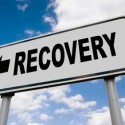Violence Against the Homeless: Is It a Hate Crime?
The chapel at Immanuel Presbyterian Church was filled to capacity last Saturday afternoon, with mourners moving up to the balcony. Much to the surprise of his family, hundreds — from infants to senior citizens — came to honor John Robert McGraham, a homeless man who was brutally murdered on Oct. 9. McGraham, 55, was doused with gasoline and set ablaze. Despite efforts of residents and shopkeepers to extinguish the flames, he died at the scene, on a sidewalk in front of a boarded up dental office on the corner of West 3rd and Berendo Street in the Mid-Wilshire area of Los Angeles. “They targeted him in my mind and that’s the worst kind of person,” says his sister Susanne McGraham-Paisley of the suspects, who remain at large. “I hope they give them the full scope of the law because that person went to a gas station, filled up the gas can, drove to the site, poured gasoline on him and then set him on fire. That person had so many opportunities to change [his] mind and … didn’t.”
California has the dubious distinction of ranking second, just behind Florida, in the number of lethal and non-lethal attacks against homeless people last year. It recorded 22 but, says Maria Foscarinis, executive director of the National Law Center on Homelessness & Poverty, the actual number of attacks is likely even higher because many are never reported. After a huge increase in 2006 — 65% some of which is attributed to the video Bumfights where people who live on the street are pitted against each other — last year still saw an increase of 13%. Street people, says Foscarinis, live “outside so they can be attacked by anyone for any reason. There are a couple of more subtle factors that are leading to this as well and one of them is that there are increasingly punitive actions taken by cities against homeless people. So that also sends a message that these people are less than human and that attacking them is ok.”
The attacks on homeless street people are particularly vicious. “They are the most vulnerable people in the country,” says Tony Taylor, a research associate at the National Coalition for the Homeless. “Over one in 4 attacks that are reported against the homeless end in murder. That’s huge compared to one-tenth of a percent of other protected classes,” he said, referring to categories of individuals currently protected under federal Hate Crime legislation. These typically include bias-motivated violence and intimidation against individuals based on their sexual orientation, race or religion. Being homeless on the street is not one of the existing categories. In 2006, the last year that FBI figures are available for hate crime fatalities, three individuals in the protected classes were killed versus 20 homeless individuals.
Hence, there is a movement to get them covered by existing hate crime legislation. The Coalition and Law Center are lobbying members of Congress to pass two bills, sponsored by Texas Rep. Eddie Bernice Johnson, which would amend two Hate Crime acts. The first bill, H.R. 2216, introduced in Congress on May 8, 2007 seeks to amend the Hate Crime Statistics Act to include crimes against the homeless. This would require the FBI to collect data on crimes against the homeless — data sorely needed by homeless advocates — in order to determine if they are hate-motivated attacks. The second bill, H.R. 2217, introduced on the same date, seeks to include the homeless in the list of classes protected under the Violent Crime Control and Law Enforcement Act of 1994. Both bills have been referred to the House Subcommittee on Crime, Terrorism, and Homeland Security.
Foscarinis says the legislation proposed seeks to increase the punishment for hate crimes against the homeless by three offense levels. “At the same time we are lobbying for real solutions, which are housing and social services for homeless people, we have to make sure their lives and dignity are respected,” says Foscarinis. “The point of hate crime legislation to act as a deterrent. It becomes a more serious crime when it’s considered a hate crime and there is a harsher sentence that’s imposed. We want to send a message that homeless people’s lives are just as valuable as anyone else’s life.”
That has certainly been the unintended consequence of McGraham’s murder. It has stirred outrage in the wider Los Angeles community. The Los Angeles City Council is offering a $75,000 reward for information leading to the arrest and conviction of the individuals responsible for the crime. But it is the people who actually saw him on the streets through 20 years who have been most affected by his violent end. Poignant notes have been left at a shrine erected at the site of his murder. “You didn’t know me but I saw you on my frequent drives… you touched me so deeply…I am so sorry such cruelty took your life,” read one letter. Another simply stated, “The neighborhood will not be the same without you.” His sister Susanne was touched. “So many times when my family would go to see John, our hearts would be filled with so much sadness. My children would feel sad that we were leaving him all alone. I’m very grateful to hear that he was not alone, that his life had an effect on so many people in the neighborhood.”
McGraham’s death will be prosecuted as first-degree murder, a capital offense, according to Los Angeles Police Deputy Chief Charlie Beck. Even as she mourned, Susanne McGraham-Paisley said, “the people who did this to him did the cause of understanding homelessness a great service. Because the way in which they killed him and the way in which he died and the community’s response has clearly shown that people do have an interest in someone like our brother.”
__________
source: Time Magazine

